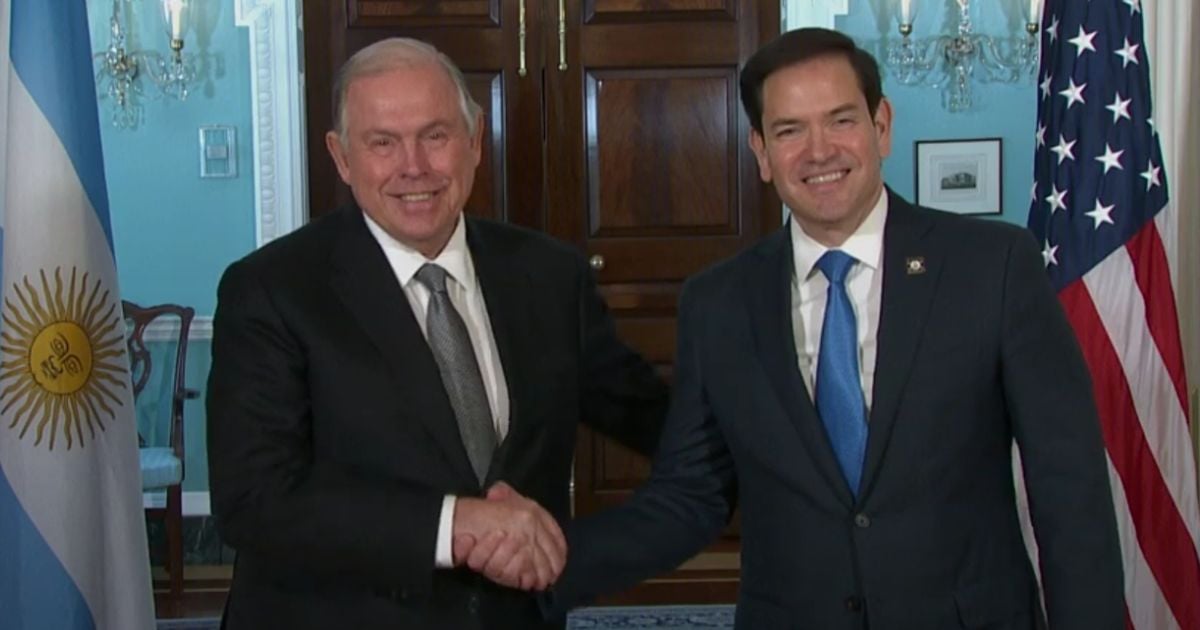On Tuesday, the United States and Argentina reiterated their joint commitment to tackle authoritarianism in Latin America, with a particular focus on the regimes in Cuba, Nicaragua, and Venezuela, as detailed in a statement from the Department of State. U.S. Secretary of State Marco Rubio held an official meeting with Argentine Foreign Minister Gerardo Werthein, where they underscored the importance of continuing to counter regimes that, according to Washington, threaten U.S. national security and the stability of the Western Hemisphere.
"Both leaders expressed their solidarity with the courageous people of Cuba, Nicaragua, and Venezuela, who continue to fight for their fundamental freedoms while facing oppression from authoritarian regimes and the harmful influence of external actors," the statement released by State Department spokesperson Tammy Bruce highlighted.
Rubio expressed gratitude for the ongoing collaboration with the Argentine government on shared economic issues and advocated for strengthening bilateral cooperation in strategic sectors.
The statement concluded by reaffirming the mutual interest in "deepening diplomatic ties between the United States and Argentina, based on shared values and common goals."
Increased Diplomatic Pressure on Cuba
The explicit mention of Cuba as a regional concern arises amidst heightened international diplomatic pressures against the Havana regime, frequently accused by international organizations of systematic human rights violations and suppression of dissent.
In September 2024, Argentine President Javier Milei made international headlines following his address at the 79th United Nations General Assembly, where he labeled the governments of Cuba, Venezuela, and Iran as "bloody dictatorships."
His speech included a strong critique of these countries' participation in the organization's Human Rights Council, questioning their legitimacy and highlighting the contradiction of their involvement in bodies that claim to defend fundamental freedoms. Milei's stance marked a departure from Argentina's traditional diplomacy and received mixed reactions both domestically and abroad.
Argentine Diplomatic Realignment
In November of the same year, the Argentine president announced the expulsion of all Foreign Ministry diplomats who supported the UN vote to lift the U.S. embargo against Cuba. He branded those officials as "traitors to the nation," accusing them of acting contrary to the foreign policy he set from the Casa Rosada. This move led to an immediate reshuffle in the diplomatic leadership, including the dismissal of then-Foreign Minister Diana Mondino, and reinforced Argentina's alignment with the United States and Israel in their stance towards the Cuban regime.
Finally, in March 2025, Cuban leader Miguel Díaz-Canel expressed support for popular protests in Argentina against Milei's proposed reforms. During an event in Havana, Díaz-Canel remarked that "we all need to come out" in defense of just causes, clearly referring to the demonstrations in the South American country. His statement drew criticism due to the stark contrast with the harsh repression the Cuban government enforces against any internal protest attempts. The irony was widely noted across social media and independent outlets, spotlighting the Cuban regime's double standards regarding freedom of expression and citizens' rights.
Key Issues in U.S.-Argentina Relations on Cuban Authoritarianism
What are the main concerns of the U.S. and Argentina regarding Cuba?
The main concerns include the Cuban regime's authoritarian practices, human rights violations, and its impact on regional stability and U.S. national security.
How has Argentina's foreign policy towards Cuba changed under President Milei?
Under President Milei, Argentina has shifted towards a more critical stance against Cuba, aligning more closely with U.S. policies, including expelling diplomats who supported lifting the U.S. embargo.
What was the response to Milei's UN speech regarding Cuba?
Milei's speech labeling Cuba as a "bloody dictatorship" received mixed reactions, with some supporting his firm stance, while others criticized the departure from traditional Argentine diplomacy.
